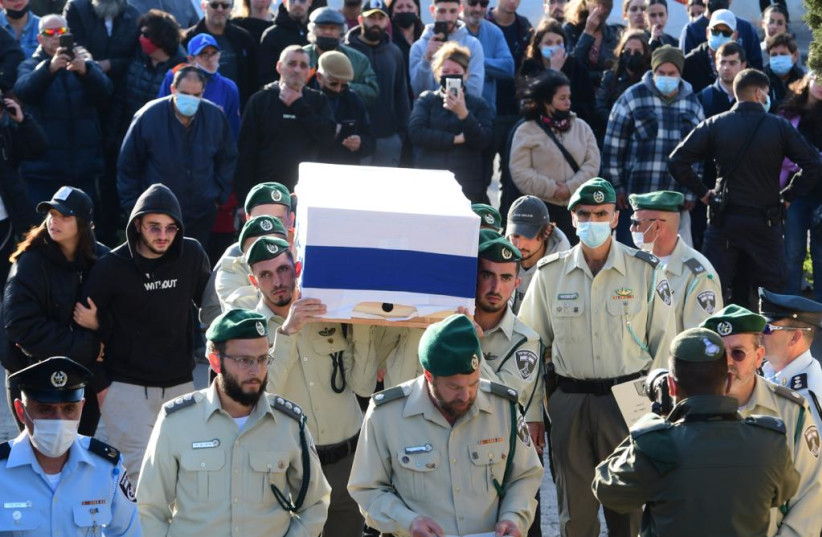Foreign Minister Yair Lapid, the foreign ministers of four Arab states – Bahrain, Egypt, Morocco and the United Arab Emirates – and US Secretary of State Antony Blinken gathered in Sde Boker on Sunday evening, launching the Negev Summit.
The summit was meant to show a united front between the countries for regional prosperity and stability, and against Iran, which threatens all the participating countries.
Even before dinner began, sources close to Lapid said that in his initial meetings with the foreign ministers of Bahrain and Egypt, they began to discuss “ideas to promote a regional security architecture to build deterrence against threats from the air and the sea” – also known as Iran.
Behind closed doors, Bahraini Foreign Minister Abdullatif Al Zayani, whose country hosts the US Navy’s Fifth Fleet, talked about building a “mini-NATO” of countries facing similar security challenges. He was also the only Arab foreign minister to specifically mention the threats from Iran and its proxies, like the Houthis and Hezbollah, in his public remarks.
The six top diplomats sat at one table in the luxurious Kedma Hotel for a dinner that included lamb chops, Jerusalem artichoke and Ben-Gurion rice. The atmosphere was warm and friendly, sources close to Lapid said.

And then, two of Lapid’s aides handed him a note that said they needed to speak to him outside. They told Lapid about the terrorist attack in Hadera – in which gunmen killed two Border Police officers and wounded six others – immediately after it happened.
Lapid returned to the dining room before learning the perpetrator’s affiliation with ISIS or seeing the video of the attack, and his counterparts asked him what was wrong. He told them and then asked them to condemn the attack.
Egyptian Foreign Minister Sameh Shoukry was the first to agree, though interestingly, he was also the only one to generally condemn terrorism and violence and not speak of the attack specifically in his public remarks. But all the others joined in without having to contact their capitals, and permitted Lapid to release a statement of unanimous condemnation from all six foreign ministers.
They also included it in their public remarks on Monday.
Israeli-Arab singer Valerie Hamaty was sent home without performing, but other than that, the Negev Summit continued as planned.
In fact, as many of the participants made clear in the following day’s press statements, they viewed continuing the summit as an act of defiance in the face of terrorism and extremism.
“The terrorists’ goal is to intimidate us, make us afraid to... build relationships and agreements between us,” Lapid said. “They will not succeed; we will not let them. We have no intention of rewarding terrorists, of letting them dictate our lives or our policies.”
Blinken said, “What we are doing here is the exact counterpoint to the senseless destruction and violence.”
UAE Foreign Minister Abdullah bin Zayed said, “We are creating a better environment. That is how we can go after the narrative of hate, of violence and terror. We will prevail, no doubt. It will cost us, but it matters.”
The ministers decided that the Negev Summit format would be repeated regularly, rotating between the participating countries. And they did what diplomats do when they want to bring results on the ground – they established working groups: six, to be precise, in areas like security and counterterrorism, education, health, tourism, food and water, and energy.
Food and energy are big issues right now in light of the war in Ukraine; Egypt gets most of its wheat from the besieged country, and the sanctions on Russian energy are leading to greater demand from the Middle East.
Another big theme of the closed-door meeting between the six foreign ministers was America’s commitment to the Middle East. The Biden administration has long given the impression that it didn’t want to deal with the region, but between complications of Iran nuclear negotiations, Iranian proxy attacks in the Gulf and the Russia-related energy problems, Blinken assured the others his attention is on the Middle East.
After serving as a sort of intermediary between the UAE and America, with the former angry with the latter for not responding strongly to Houthi attacks on their territory, Israeli officials were reassured that Blinken and Bin Zayed were able to have an open and serious discussion. Their evaluation is that the tensions have been reduced and dialogue has reopened.
All of the Arab foreign ministers backed Lapid up when he expressed opposition to the US removing the Islamic Revolutionary Guard Corps from the Foreign Terrorist Organization list. Blinken told them that the move is not yet final and that it is still unclear whether there will be a return to the 2015 Iran nuclear deal.
The ministers also told Blinken that the US should not repeat its behavior after that deal, and needs to continue to help fight against Iran-sponsored terrorism in the Middle East.
The Palestinians also came up during the meetings, which was reflected in the minister’s public comments. Lapid even said in the statements to the press that the Palestinians are invited to join future meetings, though that seems unlikely, in light of an angry tweet from Palestinian Authority Prime Minister Mohammad Shtayyeh on Monday that “Arab normalization meetings without ending the Israeli occupation of Palestine are just an illusion, a mirage, and a free reward for Israel.”
Jordan, by the way, was originally invited to the Negev Summit as well, but its Foreign Minister Ayman Sfadi was in a pre-scheduled meeting in Doha. He is more likely to attend future meetings.
The “mini-NATO” of the US, Israel, UAE, Egypt, Morocco and Bahrain, should it come together, would be the crowning achievement of the Negev Summit. The idea is not a defense alliance, but cooperation, with the countries’ defense establishments in constant contact.
There are already signs on the ground of cooperation, such as the US shooting down two Iranian drones last month that were headed for Israel.
